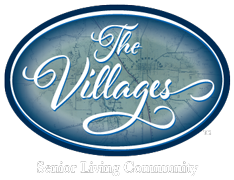When considering senior living for a loved one, 2 common options come up: skilled nursing and memory care. While they may sound similar, these lifestyles fit very different purposes. Choosing the right community and lifestyle can make a significant difference in your loved one’s everyday life.
Memory care is not the same as skilled nursing. While both settings provide support for individuals with health needs, memory care centers on helping those with cognitive decline. Meanwhile, skilled nursing focuses on advanced medical care and recovery. Each serves a unique role in supporting older adults.
What Is Memory Care?
Memory care is a type of support designed specifically for helping those living with cognitive decline. These communities are a little different than other types of senior living communities. They focus entirely on providing professional care for older adults with dementia, Alzheimer’s disease, and any other type of cognitive changes.
What’s Included in Memory Care?
These communities are structured, safe, and thoughtfully designed to meet the day-to-day challenges of memory loss. To help every resident, memory care communities offer:
- Personalized care plans that adapt to your loved one’s changing needs
- Structured routines to reduce anxiety and create a sense of stability
- Staff training focused on supporting memory loss, confusion, and behavioral changes
- Safety features like secured doors, open common spaces, and 24/7 monitoring
- Cognitive enrichment through music, storytelling, memory games, and hands-on activities
Each of these is designed to support quality of life while offering a sense of comfort and purpose.
What Is Skilled Nursing?
Skilled nursing offers more intensive medical care than memory care. These communities are designed for people recovering from surgery, dealing with a chronic illness, or needing ongoing clinical support. It’s a way to give older adults professional medical support in a comfortable, home-like environment.
What’s Included in Skilled Nursing?
Skilled nursing communities offer:
- 24/7 access to licensed medical professionals, registered nurses, and care teams
- Treatment options such as IV therapy, injections, wound care, or pain management
- Rehabilitation services like physical therapy, occupational therapy, or speech therapy
- Short-term or long-term stays, depending on recovery needs and medical status
Families often turn to skilled nursing when their loved one needs more support than what’s available in traditional senior living.
Comparing Memory Care & Skilled Nursing
Memory care and skilled nursing both offer structured environments, health services, and a high level of support. However, their focus and staffing differ significantly.
Key Differences in Focus
While both care types assist with daily living support, memory care is designed to support residents with cognitive decline. The core focus is on routine, emotional support, and memory-stimulating activities. Skilled nursing, on the other hand, emphasizes physical health, wound healing, and medical recovery.
Staff Training & Expertise
In memory care, team members are trained to handle dementia-related needs—like managing confusion, redirecting behavior, and creating a calm atmosphere.
In skilled nursing, a broader range of medical professionals is present, from registered nurses to rehabilitation specialists, providing around-the-clock medical care.
Medical Care Availability
Memory care does sometimes include access to healthcare providers, but they may not be available at all hours. On the other hand, skilled nursing offers 24/7 medical oversight and support, especially for residents with serious or ongoing chronic illness.

How to Choose the Right Level of Care
So, how can you pick the right level of care for a loved one? It’s all about looking at your loved one’s overall health, lifestyle, and current challenges.
Physical Health Considerations
If your loved one requires assistance with wound care, injections, or has complex medical needs, skilled nursing might be appropriate. These communities are staffed with professionals equipped to monitor and manage ongoing medical care.
Cognitive Health Needs
When memory loss or confusion becomes disruptive to daily life, memory care may be the better fit. These communities focus on safe environments and cognitive enrichment, while still helping manage common conditions.
Independence & Mobility
Consider how well your loved one can complete basic tasks like dressing, bathing, and eating. If your loved one is physically dependent on others for everyday tasks, skilled nursing is likely the better fit. If they require reminders or mild assistance due to cognitive decline, memory care stands out as an ideal option.
Progression of Conditions
Memory care is ideal for people living with conditions that gradually worsen over time. These settings adapt to different stages of cognitive decline. If your loved one needs around-the-clock medical support, however, skilled nursing is much more ideal.
Supporting Your Loved One’s Journey—Together
Choosing between memory care and skilled nursing isn’t always easy. It takes time to look into potential communities and find a place that truly meets your loved one’s needs. There’s no need to worry, though—our team at The Villages of Murfreesboro is here for you.
Here in our community, we’re proud to offer memory care services to those in need. If your loved one is living with cognitive decline or memory impairment, our team is ready to step in. Book a tour with our team today to learn more about how we can help!



